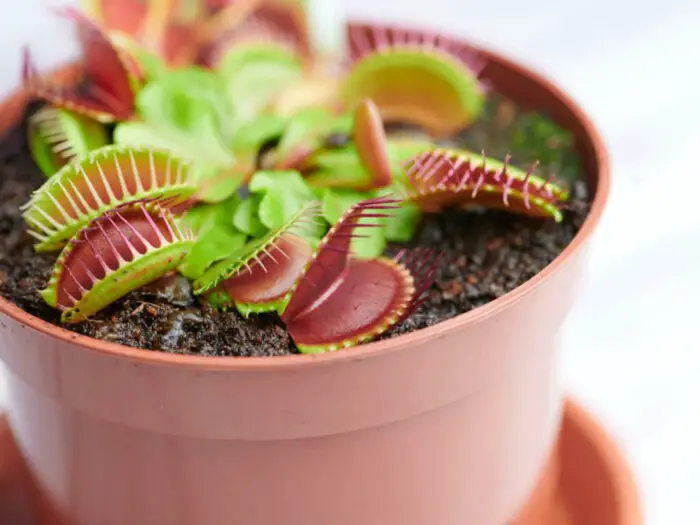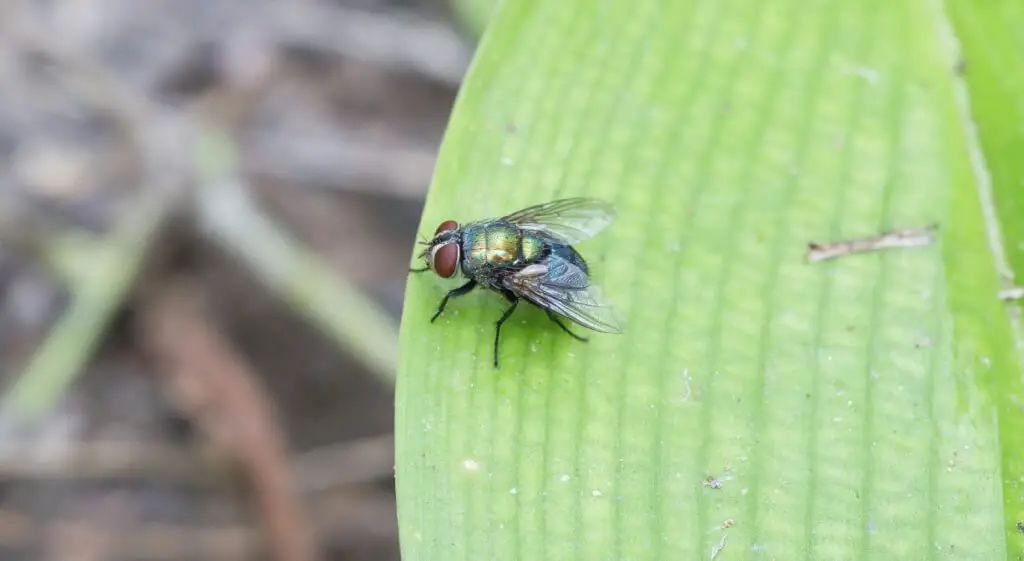Are flies becoming a constant nuisance in your home or outside? Then it’s about time that you considered plants for flies.
Flies can be pretty irritating, not just your ordinary house flies, but also whiteflies and fruit flies. From buzzing across the house, landing on food and drink, and carrying diseases, flies are pesky insects you’d rather do without.
Apart from flies, fleas, gnats, mosquitoes, slugs, roaches, and a host of other unwanted visitors can make life a living hell. You can indeed use insecticides and pesticides as pests and insect repellants.
However, what better way to keep these intruders at bay than plants that repel flies naturally?
We’ve compiled a list of 11 plants that’ll come in handy in repelling flies and other insects.
What Type of Plants Keep Flies Away?
- Lemongrass
- Lavender
- Marigolds
- Petunias
- Lemon Thyme
- Mint
- Tansy
- Basil
- Pennyroyal
- Wormwood
- Venus Fly Trap
What Plants Repel Black Flies?
Black flies can make your life unbelievably miserable. Whether relaxing in your garden, barbequing, or reading on your porch, these nasty little things will always find you.
Fortunately, introducing citronella, lemongrass, cedarwood, and mint will take care of black flies.
What Plants Deter Mosquitoes and Flies?
Keeping flies and mosquitoes at bay can be an uphill task, whether in your house, patio, or backyard. This calls for plants that can repel flies in your vegetable gardens, hanging baskets, and also as houseplants.
So, let’s look at plants that will drive flies and mosquitoes from your property.
1. Lemongrass
Lemongrass has excellent culinary uses in soups, teas, curries, and stews, primarily due to its aromatic oils. However, it’s also known for its fly-repelling ability. Lemongrass plants contain essential oils called citronella, an ingredient in insect repellants and outdoor candles.
As far as bug-deterrents go, lemongrass is the ultimate choice. The best way to plant lemongrass is in pots near your main door or sunny areas near the entrance to your house.
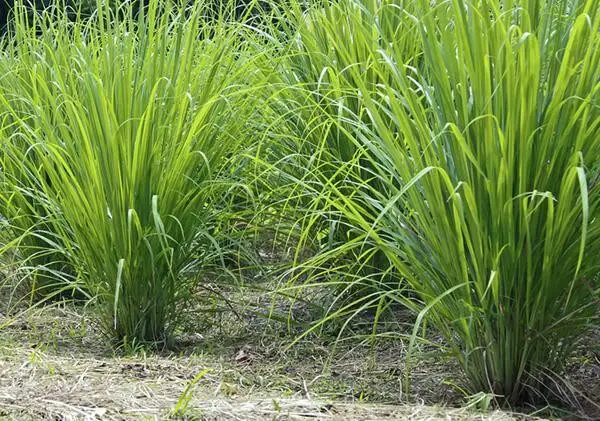
2. Lavender
Considering its lovely scent, you wouldn’t rank lavender as a potent fly repellant. However, whether as a garden plant or a potted indoor plant, lavender repels mosquitoes, fleas, moths, flies, and a host of other bugs, including spiders!
You can apply lavender oil extract to the skin, especially when relaxing on the patio or garden. You can also take it to the next level by harvesting lavender, drying the flowers, and keeping the richly-scented sachets in your closet or cupboard.
You can hang dried lavender indoors and on doorways.
3. Marigolds
Marigolds boast of a distinctive smell that keeps mosquitoes, gnats, midges, and nematodes at bay. Most importantly, they release limonene, a highly effective substance in driving whiteflies away.
You can intersperse marigolds throughout your veggie patch or use them to border your garden beds. Although these plants thrive better outside as they love sunny areas, you can still incorporate them as houseplants as long as there’s sufficient light.
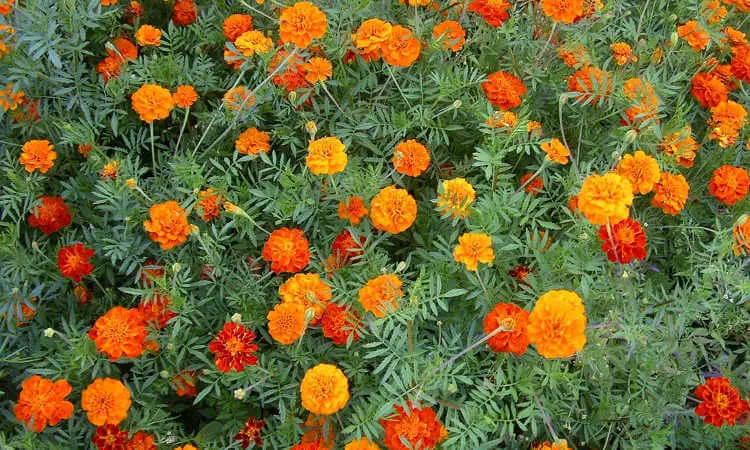
4. Petunias
Landscapers and homeowners alike have a soft spot for petunias and refer to them as nature’s pesticide. The repertoire of pests and insects they repel includes aphids, squash bugs, and asparagus beetles.
Apart from the pest control function of petunias, their vibrant lilac and purple colors are a welcome sight in any outdoor space.
5. Lemon Thyme
Lemon thyme is a hardy herb that does well in rock gardens, herb gardens, or even pots, as long as there’s sufficient light. Note that the plant only repels flies and mosquitoes after its leaves are bruised to release a chemical.
To be on the safe side, cut a few leaves and rub them over your skin to check for any adverse reaction.
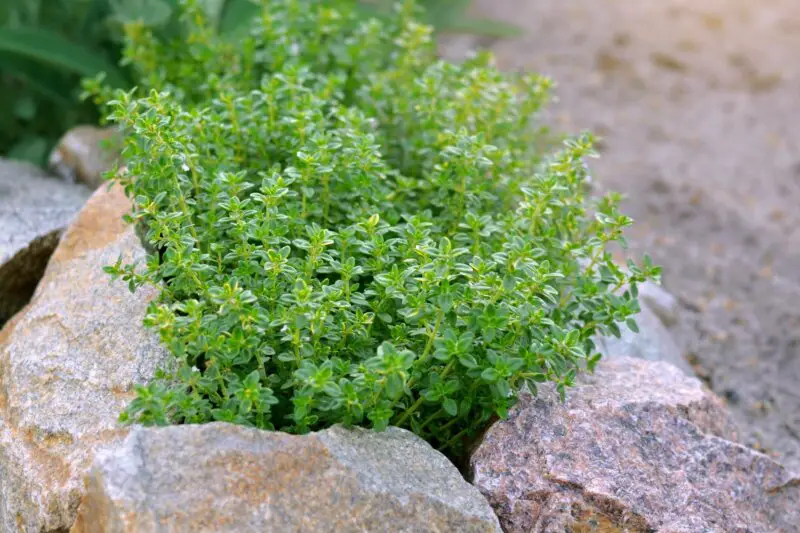
6. Mint
The mint family consists of spearmints, citrus mints, chocolate mints, and even sweet mints. What sets them apart is mentha, a potent substance against flies and other insects.
Whether dried or fresh, mints have a delicious aroma that repels insects. However, the extraction of mint oil really reveals the true potency of this plant as an insect repellant.
Mints can grow pretty large, so it pays to have a suitable pot for planting. It can also outgrow the pot quite fast, meaning regular splitting and repotting of the plant is necessary. When selecting any mint plant, choose one with the most potent smell.
So, whether you grow mints in pots, rub them on the skin, or use mint oil extracts, you’ll find its fly repellent qualities quite impressive.
7. Tansy
Don’t let the towering green-stemmed charm and clusters of beautiful yellow flowers of the tansy plant fool you. It is a potent repellant for most insects, flies and mosquitoes included. Unlike many insect-repelling plants, the tansy produces its scent from flowers and not the leaves.
After extracting tansy oil and putting it in spray bottles, you can spray critical areas in the home like door and window frames. Remember that tansy can irritate human or pet skin, especially in large quantities.
You can make tansy oil spray from both dried or fresh flowers, but dried ones are more potent since the oils are highly concentrated.
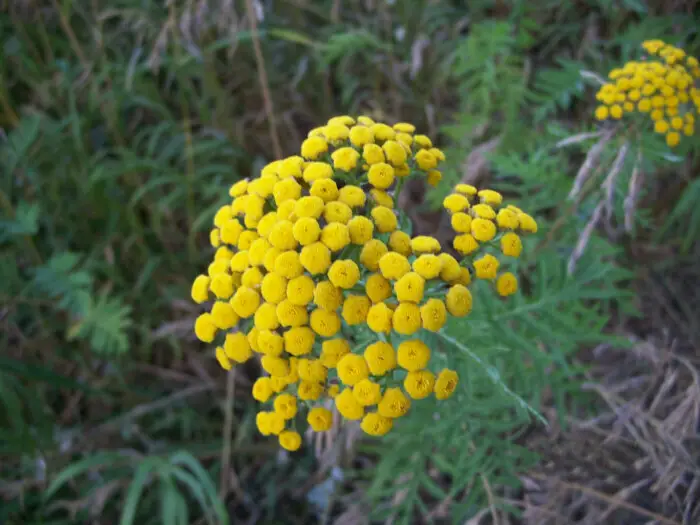
8. Basil
Flies absolutely loathe basil. Many people have basil in their herb gardens to keep pesky insects and bugs away.
You can enhance the look of your vegetable garden by planting basil between your vegetables and flowers.
9. Pennyroyal
How to get rid of flies outside will be a thing of the past with pennyroyal plants in your garden. Due to the pennyroyal’s highly effective, self-releasing oils, it takes top marks as an insect repellent. It’s so potent that it even drives mice away!
Plant pennyroyal plants beneath and around your vegetables and greenery, and voila, you have a natural insecticide.
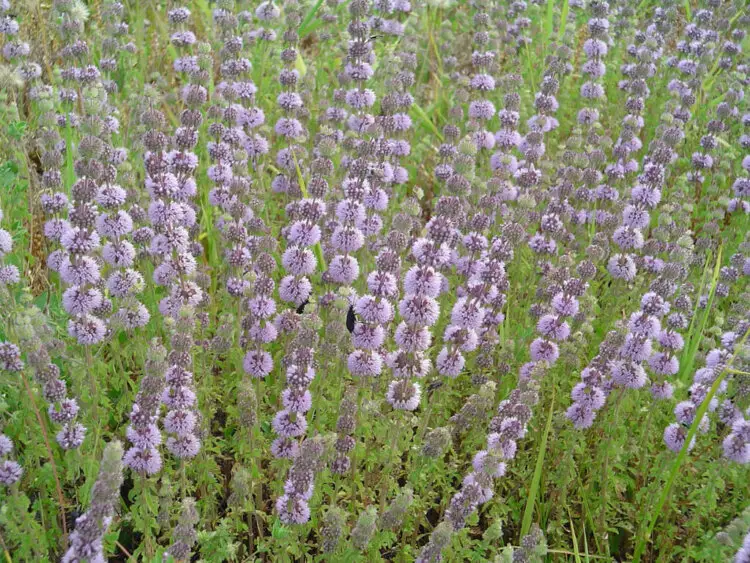
10. Wormwood
Wormwood, popularly known as absinthe, has a resinous particle that functions superbly as a natural insecticide. You can pick fresh wormwood and rub it on your clothes or skin.
Alternatively, you can bundle it and put it indoors to repel flies and mosquitoes. However, avoid ingesting this substance as it can cause adverse effects.
11. The Venus Fly Trap
You can also banish flies by buying carnivorous plants like the Venus Fly Trap from Amazon. This plant lures flies and other insects with a deadly combination of nectar, a heady scent, and color. It then catches them and devours them.
Apart from being a reliable insect control mechanism, it also adds to the allure of your indoor garden.
